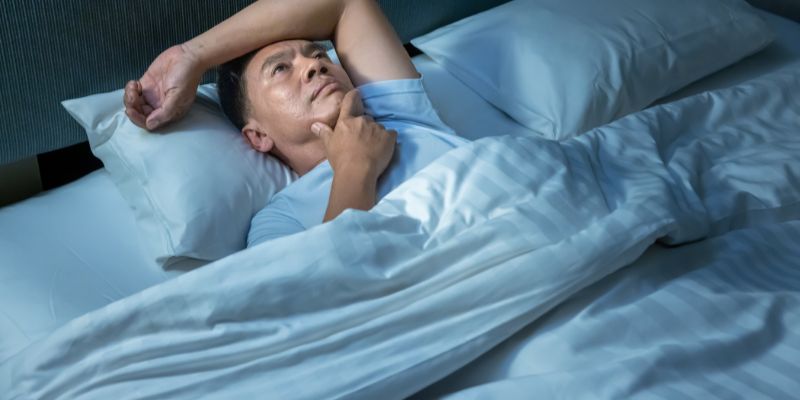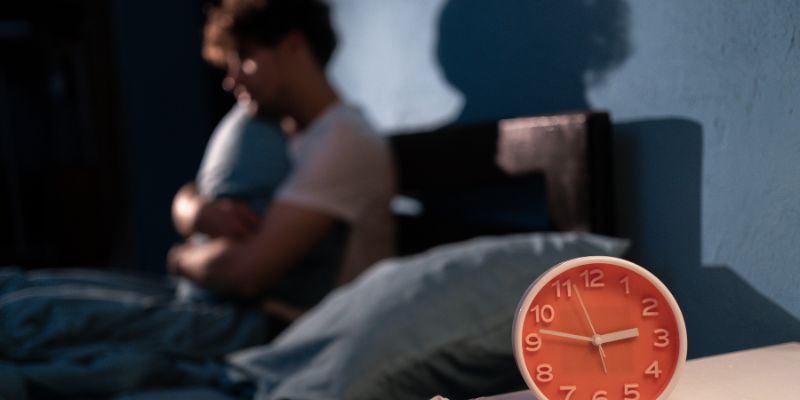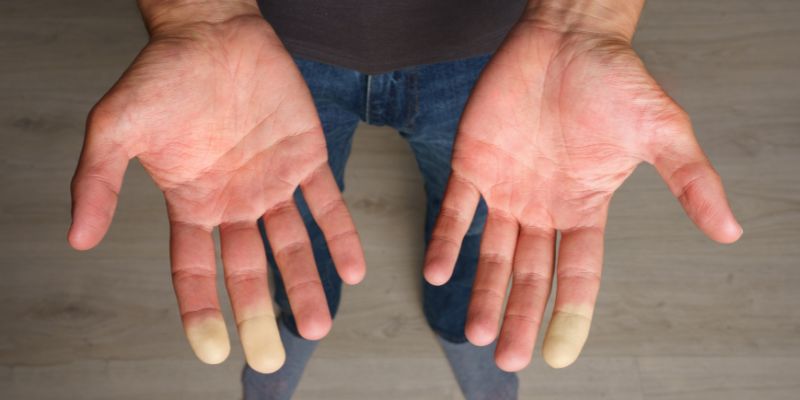Advertisement
It is estimated that around one-third of the population doesn't get the sleep they need. And it's no surprise that lack of sleep can cause your body to feel unrested, lazy, sleepy, dizzy, and cause many other bad symptoms. But is there any truth to the claim that lack of sleep can affect your pain and chronic pain? In this article, well discuss what effects sleep deprivation has on your pain and what other effects it can have on your body. Let's begin.

Lack of sleep can cause a neurotransmitter to decrease in function, causing you to feel more pain. A study found that lack of sleep can cause you to feel 1.2x more pain than if you slept for 8 hours regularly. The research involved two groups. They let one group stay awake for 24 hours, and the other group sleep 8 hours a night. What they found confirmed the claim that sleep deprivation can affect how your brain perceives pain. When you get proper sleep of 7-9 hours, your brain function stays sharp, and your brain feels the pain to a lighter degree than if you were sleep-deprived.
Here are some other harmful effects and pains that sleep deprivation can cause:
People who are sleep-deprived report feeling headaches and migraines on the regular. However, they can also be caused by dehydration. Drinking enough water and getting enough sleep are equally important for relieving headaches and migraines.
Sleep deprivation can also prevent you from waking up in the morning and performing at your full potential. If you're feeling lazy in the morning and are not getting 7-9 hours of sleep, you need to sleep more.
If youre experiencing chronic pain, chances are that sleep deprivation can make your pain even worse. Chronic pain patients should be getting more sleep than anyone else, as they're more prone to pain flare-ups due to lack of sleep.
Sleep deprivation increases your risk of getting a sudden stroke and other heart-related diseases by multiple folds. This is proven accurate time and time again in numerous studies. It doesn't matter if you have heart-related conditions or not. Sleep deprivation can cause you to develop them.
Sleep deprivation is known to increase the risk of diabetes, specifically type 2 diabetes. It's one of the main leading causes of type 2 diabetes, apart from genetic disposition and high sugar intake.
In which state do you think most people are prone to catching viral diseases? It's when you're sleep-deprived. Sleep deprivation can make your immune system worse, where it wont work at full function, and lack of sleep might prevent it from fighting diseases that are constantly attacking your body.
It's no surprise that sleep-deprived people report feelings of brain fog, being unable to think properly, not remembering important information, and other brain-related harmful effects. After all, brain function and sleep are closely related.

Getting proper sleep is essential, but there is no one time that fits all. Still, there are general guidelines that you can follow and then increase or decrease your sleeping time from there. Here is a sleep chart for all ages, from newborn babies to older people, to help reduce the harmful effects of sleep deprivation.
Newborns younger than three months should get the most sleep of any other group. It is recommended that they get 1417 hours of sleep a night so they do not feel pain or upset when they wake up.
Babies in this age range should get 12 to 16 hours of sleep. This includes the total number of sleep hours they should be getting per day, including naps.
Children between 1 and 5 years of age should get 10-14 hours of sleep to maintain positive brain function and avoid feeling groggy or experiencing pain.
Children between the ages of 5 to 13 should rest for 8-10 hours at night.
Even though teenagers are older than young kids, they should still get 7-10 hours of sleep so they don't develop insomnia or worsen their existing pains.
As people get older, they require less and less sleep until they reach their ideal sleep time. Experts say that healthy adults between the ages of 21 and 65 should get 7-9 hours of sleep.
However, for some, 6 hours may be enough, while for others, 9 hours can be too little. It's important to find your ideal resting time and stick to it.
Here is a no x, y hours before bed tip chart, also known as the 10-3-2-1 rule, to help you sleep well at night. It might seem unusual at first, but its easier to remember. Once youve established your sleeping and waking-up times, you can follow this routine to help you stick to it.
Caffeine can awaken your body. So, the last thing you want to do is consume caffeine close to bedtime. It would be best to stop consuming foods and drinks that include caffeine at least ten hours before bed.
Have dinner at least five hours before bed, and stop eating, drinking, and snacking three hours before bed. If you eat close to bedtime, your digestive system keeps running, disturbing your sleep.
Stop all your work activities when you have two hours left before bedtime. This can help your brain start calming down and prepare for your bedtime routine.
Avoid screens and electronics, as they emit blue light, which can signal your brain to wake up instead of calming it down. At bedtime, you can read a book, solve puzzles, and indulge in other mind-relaxing activities.
Sleep deprivation is a major problem of this generation. 32% of the world's population reports not getting enough sleep. Sleep deprivation can cause headaches, migraines, chronic pain flare-ups, and many other harmful health conditions. However, sleep deprivation is not a condition. To fix your sleeping pattern, you should incorporate healthy habits, make a sleep routine, and follow the 10-3-2-1 rule mentioned in the article. Sticking to a process will help you get the sleep you need and feel your best during your waking hours.

By Madison Evans/Oct 24, 2024

By Christin Shatzman/Oct 15, 2024

By Georgia Vincent/Apr 02, 2025

By Jennifer Redmond/Dec 14, 2024

By Noa Ensign/Nov 10, 2024

By Celia Kreitner/Feb 19, 2025

By Noa Ensign/Dec 15, 2024

By Juliana Daniel/Feb 19, 2025

By Paula Miller/Apr 01, 2025

By Aldrich Acheson/Oct 10, 2024

By Maurice Oliver/Dec 15, 2024

By Paula Miller/Apr 01, 2025